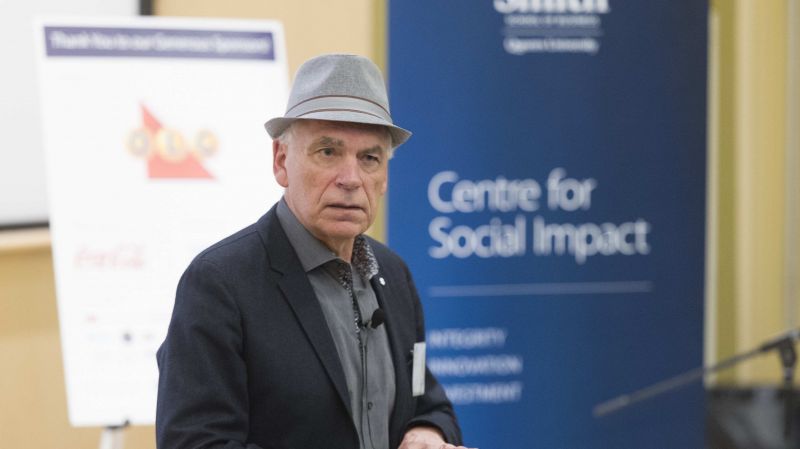Social Entrepreneurs, Do Your Valley Work
It’s not enough to bring your social enterprise to the mountaintop, says a veteran change maker. You have to work with existing cultural habits and put your ego to the side

Al Etmanksi is a long-time community organizer and serial change maker, and one of Canada’s leading thinkers on social entrepreneurship. He is author, most recently, of Impact: Six Patterns to Spread Your Social Innovation. In a recent presentation to the Social Impact Summit, organized by the Centre for Entrepreneurship, Innovation & Social Impact of Smith School of Business, Etmanski discussed the need for social entrepreneurs to “engage the culture and make peace.” In this excerpt, he explains his advice.
All the people I know who scale their social enterprises and achieve significant impact do the equivalent of climbing a mountain. They have to unlearn everything they learn and acquire a whole new set of skills. They get to the top of the mountain and what do they see? They see other mountain peaks, and on those peaks are people just like them.
These change makers discover that their scaled solution is linked to a range of other challenges. Mental illness, for example, is linked to addiction, which is linked to homelessness, which is linked to poverty, which is linked to food security. They see other change makers with solutions that could help them achieve the impact that they’re hoping for. But they’re all on their own mountaintops; how will they connect with each other?
They have to descend into the valley and start doing valley work. This is where most people live. This is where culture lies — the habits, attitudes, working relationships, hierarchies, and structures that tend to keep things the way they are despite our best efforts.
Making peace is a critical aptitude for addressing cultural forces and the complex social and environmental challenges that can’t be resolved by scaling just one initiative
Valley work is also about peacemaking. I use the term “peace making” because until we can learn to make peace with our friends and our allies — let alone the people we don’t like, don’t trust, or don’t know — we’re not going to get the collective action that’s necessary to address the cultural dimensions of the challenges we want to resolve.
Making peace is a critical aptitude for addressing cultural forces and the complex nature of the social and environmental challenges that can’t be resolved by scaling just one initiative.
If you’re going to work with other people who come down from their mountaintops, you have to deal with your ego. My reality is that I like collective work as long as I’m in charge. I like to belong to coalitions that report to me. I like partnerships that follow my agenda. Time and again, coalitions I’ve been involved with did not hit the rocky shoals as a result of a lack of technology or a well-coordinated plan. They hit the shoals because of the failure to make peace within our inner spiritual life and with our outer activist self; to make peace with the elderly and the young, with the traditional and the modern, and with those whom we have hurt or who have hurt us.